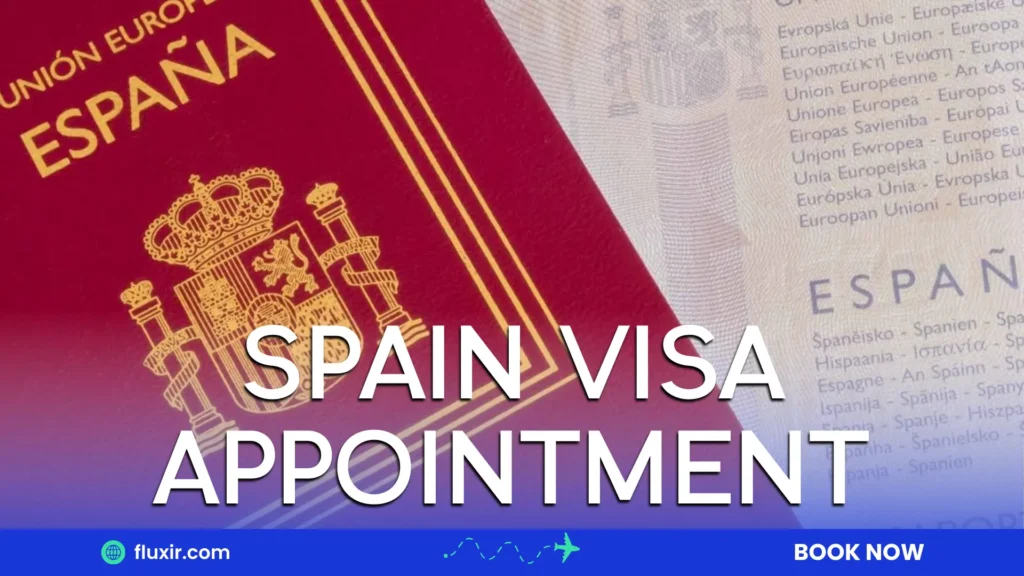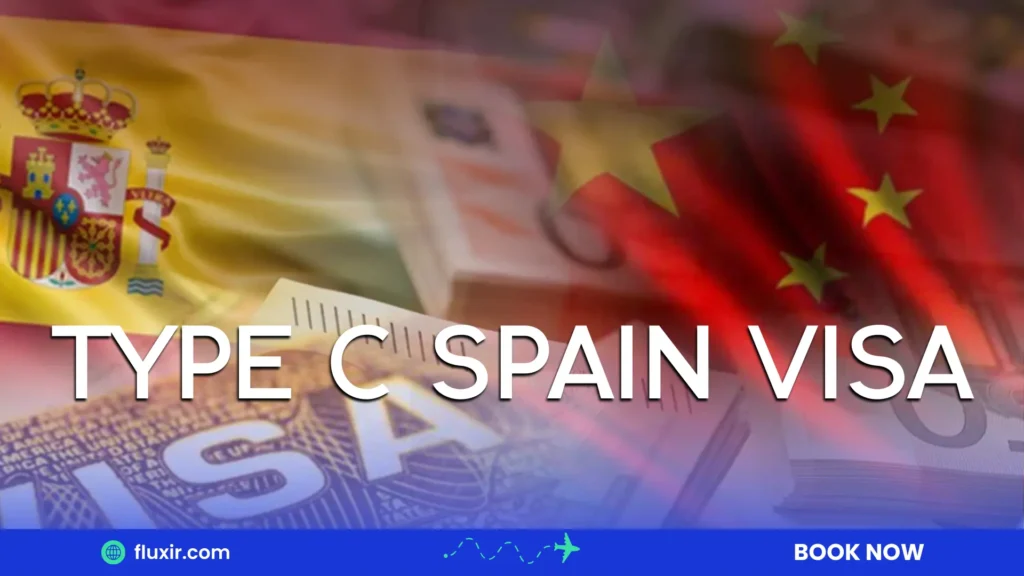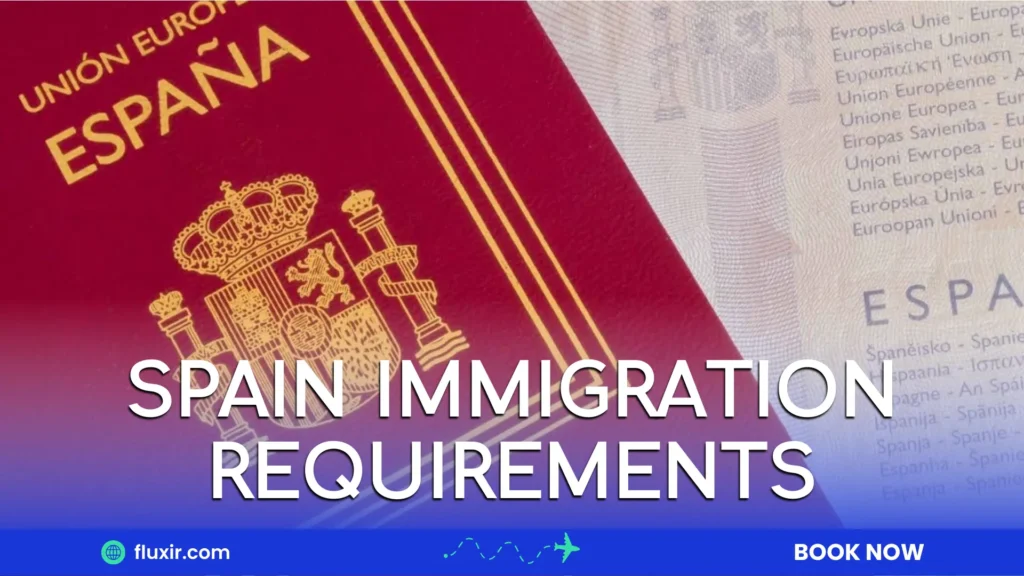How to book Schengen visa appointment for Spain and how to apply
If you’re dreaming about wandering the streets of Barcelona, enjoying tapas in Madrid, or relaxing on the beaches of Mallorca, you’ll first need to secure your Spain Schengen visa. Applying for a visa might sound complicated, but with the right preparation and support from a trusted service like Fluxir, it can be a smooth and easy process. In this guide, we’ll show you exactly how to book your Schengen visa appointment for Spain, the best time to apply, and what you can expect during the process in 2025. Let’s get started. What Is a Spain Schengen Visa? A Spanish Schengen visa allows you to travel not only to Spain but also to all 26 countries that are part of the Schengen Area. It’s the perfect option if you’re planning a European vacation that includes multiple destinations. However, if Spain is your main destination (meaning you will spend most of your time there), you must apply through the Spanish embassy or consulate. Getting your Schengen visa appointment for Spain on time is the first and most important step to make your trip happen. How to Book a Schengen Visa Appointment for Spain Booking your Schengen visa appointment for Spain is easier when you know the right steps It is worth mentioning that booking a Schengen visa appointment for Spain is the first step toward your European adventure. Start by choosing the right Spanish consulate based on your location. Fill out the application form, gather your documents, and schedule your appointment early to avoid delays. Trusted services like Fluxir can simplify the entire process for you. How to Apply for a Spain Schengen Visa in 2025 You can apply easily by following these steps: Choose the Right Consulate or Visa Center You must apply at the Spanish Consulate that has jurisdiction over your place of residence. If you’re in a different country temporarily, you might need special permission to apply there. Complete the Visa Application Form Fill out the Schengen visa application form carefully. You can usually find this form on the official website of the Spanish Consulate or on trusted visa support websites like Fluxir. Always double-check for any updates for 2025. Gather All Required Documents Before booking your appointment, make sure you have all necessary documents ready, including: Valid passport Recent passport-size photographs Travel itinerary (flight bookings) Proof of accommodation Travel insurance covering €30,000 Proof of financial means Employment letter or proof of business Visa fee payment confirmation Book Your Appointment Once you have everything ready, go to the official appointment booking portal for the Spanish embassy or consulate and schedule your visa interview. Keep in mind that slots can fill up quickly, especially during the travel season. Working with a professional service like Fluxir can help you secure a faster appointment and guide you through every step. What’s the Best Time to Apply for a Spain Schengen Visa? Timing is everything when it comes to visas. Here’s what you need to know about the best time to apply for a Schengen visa appointment for Spain: Apply Early: You can apply for a Schengen visa up to six months before your planned travel date. Ideal Time: It’s best to apply at least 8 to 10 weeks before your trip, especially during busy seasons like spring and summer. Avoid Last-Minute Stress: During peak seasons, available appointment slots fill up very quickly, and processing times may be longer than usual. By planning early, you give yourself enough buffer time to handle unexpected delays and ensure you have your visa well before your travel date. What Is the Success Rate for Spain Schengen Visas? You might be wondering about your chances of approval. The good news is that Spain generally has a high approval rate for Schengen visa applications. However, success largely depends on: Submitting complete and accurate documents Demonstrating strong ties to your home country Showing clear travel plans and sufficient financial resources According to official reports, Spain had an approval rate of about 80% to 85% in recent years. Preparing your application properly with expert help, like from Fluxir, can significantly boost your chances of approval in 2025. Common Reasons for Spain Schengen Visa Rejection While the approval rate is high, some applications still get rejected. Common reasons include: Incomplete application or missing documents Doubts about the purpose of your visit Lack of financial proof Weak ties to the home country Suspicious travel history To avoid these pitfalls, it’s important to submit a strong application. Services like Fluxir can assist you in reviewing every part of your application before submission. Key Tips to Increase Your Chances of Approval Here are some simple tips to make your application stronger: Always provide honest and clear information Double-check all documents before submission Purchase reliable travel insurance Show proof of stable employment or business Clearly outline your travel itinerary Book your appointment early Remember, the consulate needs to be sure you will return to your home country after your trip. Any document that strengthens that belief works in your favor. Why Choose Fluxir for Your Spain Schengen Visa Appointment? At Fluxir, we make your Schengen visa appointment for Spain process easy and stress-free. Our expert team will: Help you gather and review all necessary documents Book your appointment quickly and efficiently Prepare your for your interview Give you full support until you receive your visa We understand the specific requirements and the latest changes for 2025, so you don’t have to worry about missing any important details. We are committed to giving you the best possible chance of success. Start Your Spain Adventure with Fluxir Ready to make your European dream come true? At Fluxir, we take care of the details so you can focus on planning your amazing trip. Let us help you secure your Schengen visa appointment for Spain and guide you through every step of the visa process. Your Spanish adventure starts here. Reach out to Fluxir today and let’s turn your travel dreams into reality.










